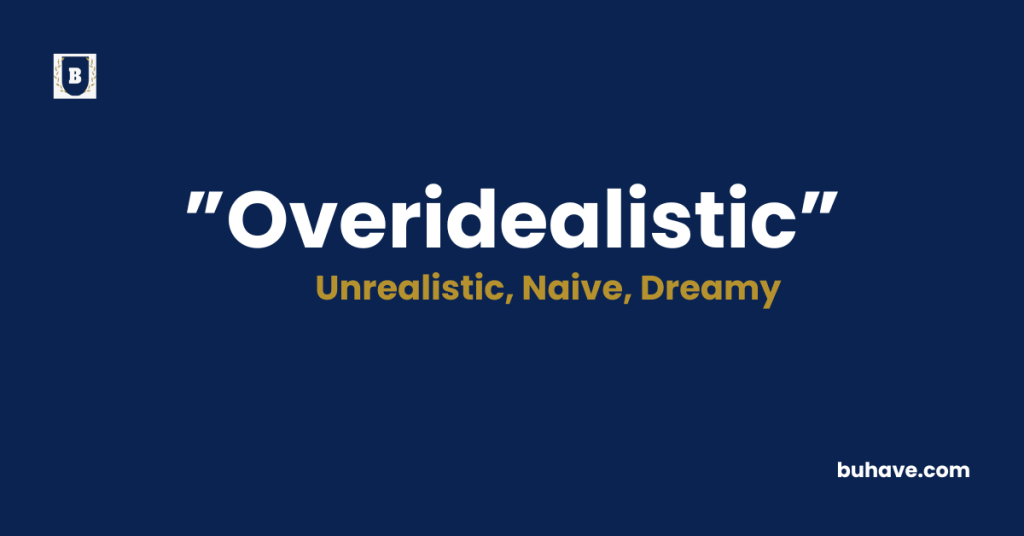The word Overidealistic (adjective) describes someone who holds excessively optimistic or unrealistic beliefs or expectations, often ignoring practical limitations. In this guide, you’ll learn the full definition, synonyms, antonyms, etymology, and real-life examples of how to use Overidealistic correctly in sentences.
Overidealistic Explained in Depth
A complete and detailed guide to the word Overidealistic including meaning, definition, examples, etymology, synonyms, and antonyms.
Meanings of Overidealistic
Overidealistic means having an excessively positive or utopian view of people, situations, or outcomes. It often involves unrealistic beliefs or standards that may lead to disappointment or impractical decisions.
Definition
Overidealistic refers to someone who sees things in an overly perfect or optimistic way, often without considering real-world flaws or complexities. It highlights an excessive or naïve tendency to idealize people, goals, or systems.
Etymology
The word overidealistic is formed from the prefix over- meaning “too much” and idealistic, which comes from the word ideal and the suffix -istic, meaning “pertaining to.”
“Ideal” comes from Latin idealis and Greek idea, meaning “form” or “pattern.”
Example Sentences
- Her overidealistic views on politics made it hard for her to accept compromise.
- He was overidealistic about how easy it would be to start a successful business.
- Being overidealistic can lead to frustration when reality doesn’t match expectations.
Overidealistic Synonyms
- Unrealistic
- Naïve
- Impractical
- Romanticized
- Overoptimistic
- Quixotic
- Utopian
- Starry-eyed
- Visionary
- Dreamy
Overidealistic Antonyms
- Realistic
- Pragmatic
- Down-to-earth
- Sensible
- Practical
- Cynical
- Clear-eyed
- Grounded
- Rational
- Reasonable
FAQs about Overidealistic
Here are some Frequently Asked Questions (FAQs) about the word “Overidealistic”
1. What does “overidealistic” actually mean?
It refers to having excessively perfect or optimistic expectations, often ignoring practical or realistic concerns.
2. Is being overidealistic a flaw?
It can be, especially when it leads to unrealistic decisions or persistent disappointment.
3. Can someone be both idealistic and practical?
Yes, many people balance idealism with realism, but being overidealistic implies an unhealthy imbalance.
4. Is “overidealistic” the same as “naïve”?
They are related, but “overidealistic” emphasizes unrealistic hopes, while “naïve” implies inexperience or innocence.
5. How is overidealism seen in society?
It can be inspiring in some contexts, but problematic when it overlooks the complexity of real-world issues.

















